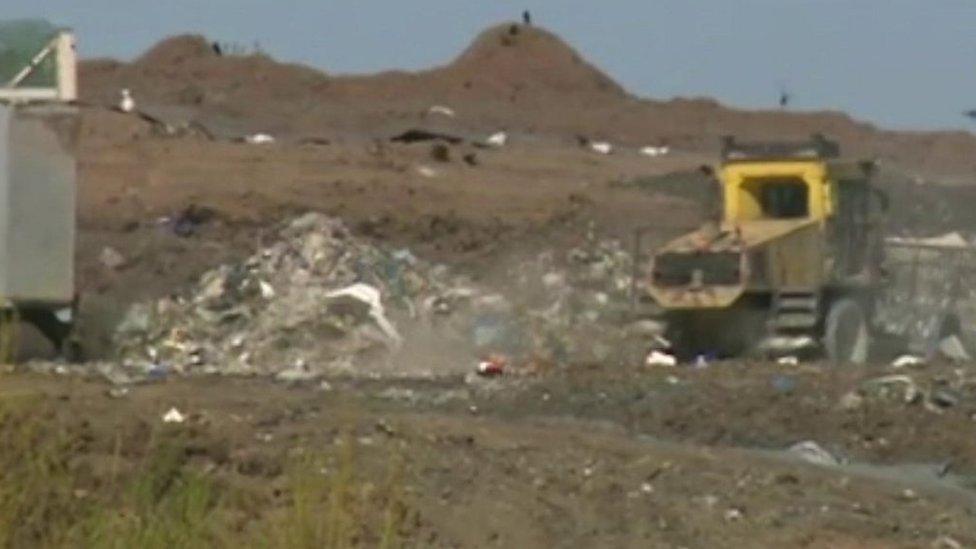Walleys Quarry: 'Progress made' at noxious smell landfill site
- Published
Walleys Quarry: Environment Agency reducing smell 'quickly'
The Environment Agency (EA) says it is making progress at a landfill site accused of emitting noxious gases.
Last month a mother won a High Court case over the emissions at Walleys Quarry, Staffordshire, after lawyers said hydrogen sulphide had worsened her son's underlying health issues.
The judge was critical of the EA and ruled "real and significant change" was required "as a matter of urgency".
The area director said double the amount of gas was now being captured.
"What's really important is that the work that's happening happens at pace, but at a sensible pace, and that is what we're seeing," Claire Dinnis told the BBC.
"Over double the amount of gas is being captured now than was at the beginning of the year and about 70% of the site is capped and that that's what's led in part to to the reductions in hydrogen sulphide."
Rebecca Currie, who lives approximately 400m (1,312 ft) away from the landfill in Silverdale, said the emissions had worsened her son Mathew Richards' breathing problems.
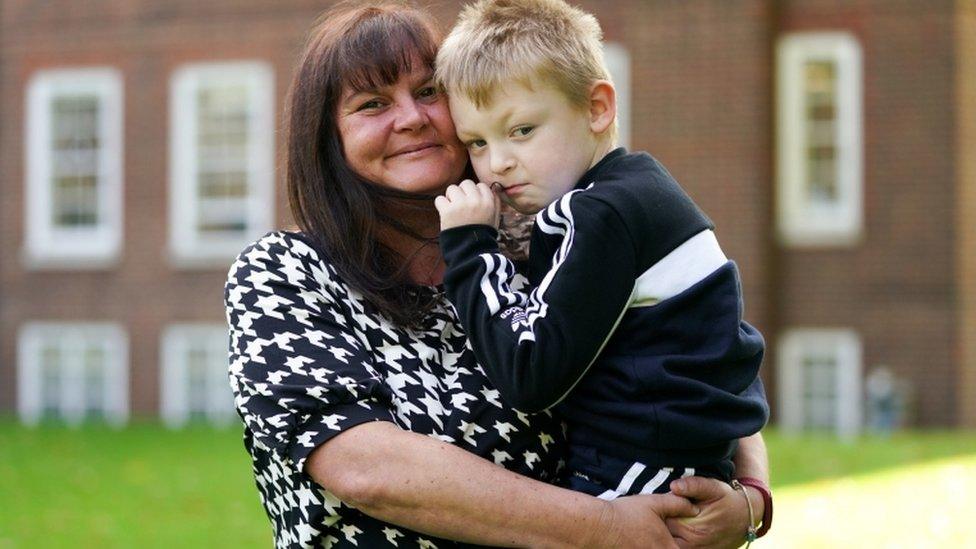
Mathew Richards, who lives about half a mile from Walleys Quarry, was born with chronic lung disease
Ruling in her favour, Mr Justice Fordham said he was not satisfied the EA had complied with its legal duties.
Thousands of residents had previously complained of sleeplessness and breathing difficulties and claimed it was worse since the beginning of the year.
EA figures had shown how hydrogen sulphide levels recorded at the site had, at points, exceeded World Health Organization guidelines.
Hydrogen sulphide is a poisonous, corrosive gas with an eggy smell.
Ms Currie said previously of her son's condition: "The first three years of his life, we were just [in] hospital, continuously, with chest problems, bronchiolitis, consistent cough."
"He has nights when he's coughing, vomiting, choking. He's got a consistent wet cough."
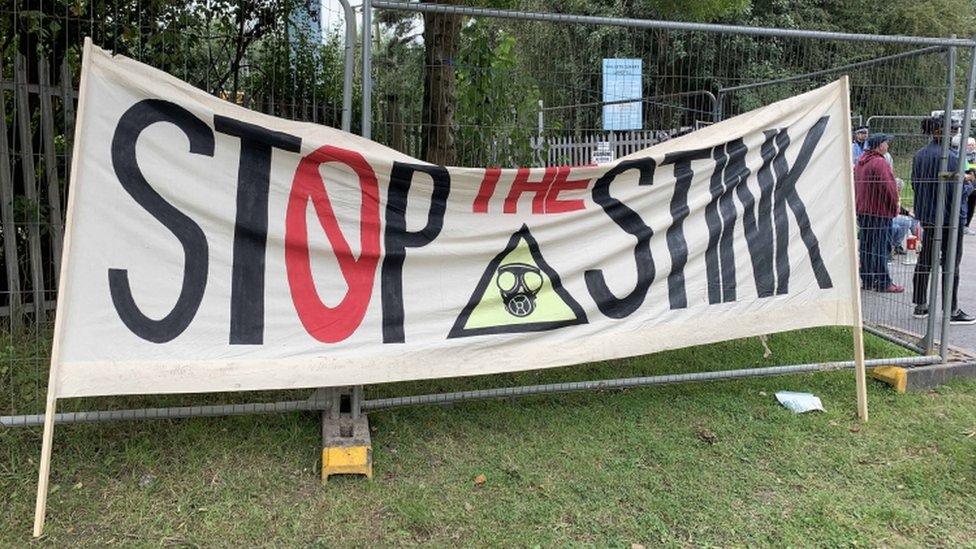
Residents have staged numerous protests over the landfill site
Ms Dinnis said: "The most important thing and where all of my team's focus is on is the operational activity on the ground on reducing those levels.
"What this community is having to live with is not something that any of us want to see.
"None of us wanted to be in a position where they felt strongly enough to have to bring that back judicial review and that's why our focus is 100% on reducing those levels as quickly and as sustainably as possible."

Thousands of complaints have been made about the smell from the landfill in Silverdale
She said there were "a number of complex factors" involved in landfill gas engineering and in managing it.
She added: "We also know the community is well aware that the winter is a more difficult time as the temperatures fall, air pressure changes and we know that hydrogen sulphide spreads more in those circumstances, so we're keeping monitoring it every day throughout the day."

Follow BBC West Midlands on Facebook, external, Twitter, external and Instagram, external. Send your story ideas to: newsonline.westmidlands@bbc.co.uk, external
Related topics
- Published16 September 2021

- Published14 September 2021
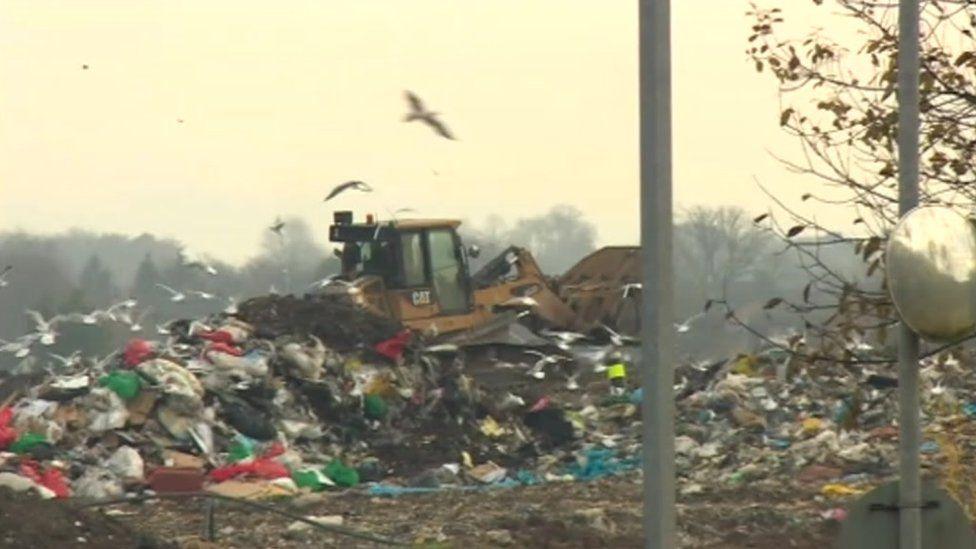
- Published26 August 2021

- Published18 August 2021
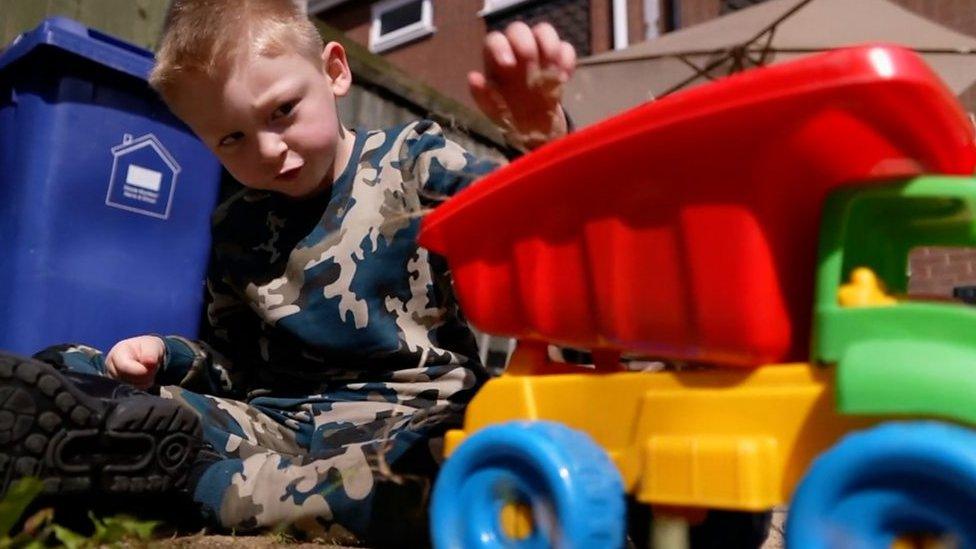
- Published18 August 2021
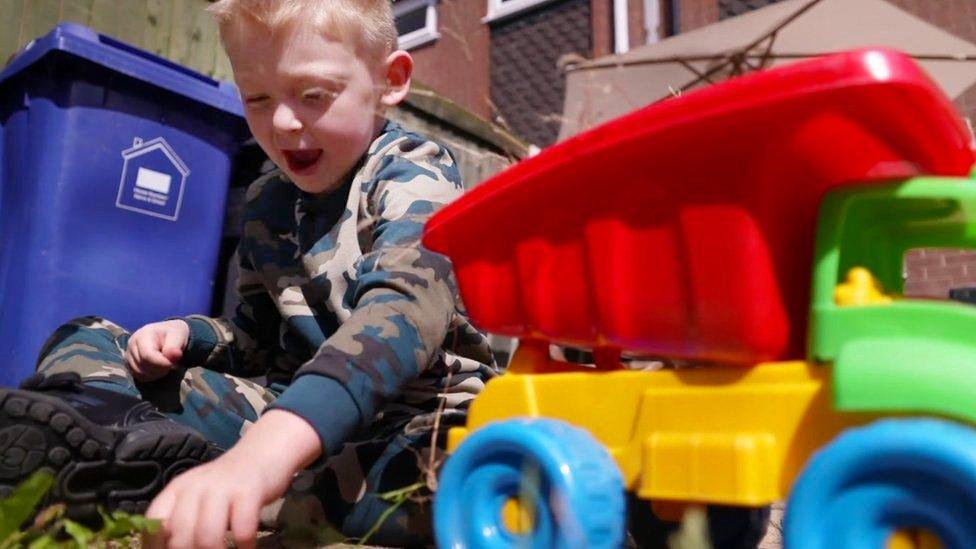
- Published13 August 2021

- Published1 May 2021
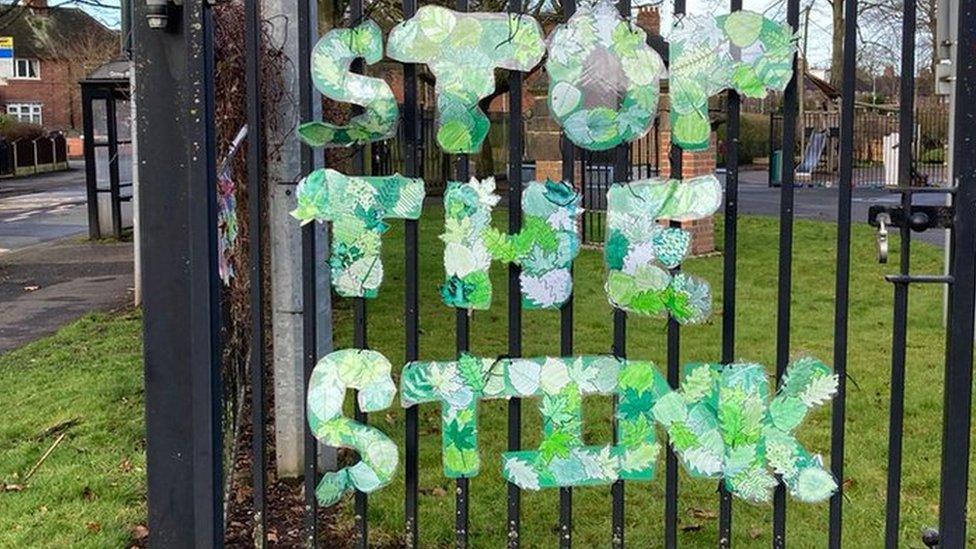
- Published29 April 2021
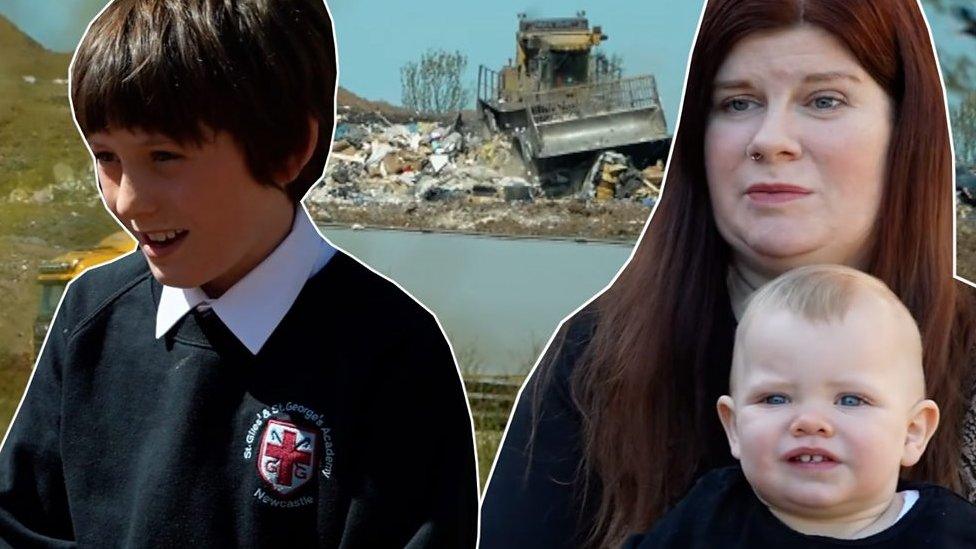
- Published23 April 2021
